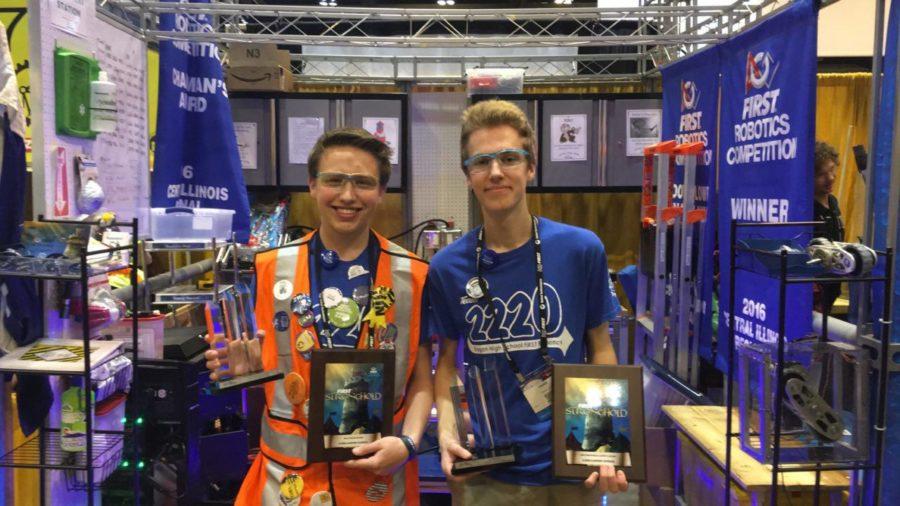Robots without Borders expands science and technology around the world
Hans Mueller, right, at the First Robotics Competition. Mueller is a sophomore in industrial engineering and founded Robots without Borders.
January 28, 2019
An Iowa State sophomore founded a program which aims to spread the knowledge of robotics programs around the world.
The program, titled Robots without Borders, is a robotics team that goes by the name of 2220 Blue Twilight. The team consists of a community of students, mentors, volunteers and sponsors with a mission to create a world where science and technology are celebrated and the knowledge of robotics is available to anyone.
Hans Mueller, a sophomore and the founder of Robots Without Borders, has spent the last four years on a mission to look for a different way to reach out to not only the local region about robotics, but nationally and internationally as well.
“Our team really has a fundamental belief that we believe in giving back, and so we were thinking of a new way to reach out to beyond our local community but also our global community,” Mueller said.
Throughout the program, different teams “have the chance to grow their outreach, learn from other teams, become educated in different cultures, travel nationally and or internationally,” according to the Robots without Borders.
Mueller said one of the biggest obstacles faced with the projects development was how it was rejected by 10 different countries when he asked them to be involved with the program. Mueller said the primary problems other countries had was the travel aspect, and not physically working together.
Mueller also said there is the issue of finding countries that are willing to invest the required amount of resources and money for such a program.
“If we could have every country on earth have the amount of density in terms of robotics teams, not only robotics teams but also to STEM education, would be absolutely huge if that was available,” Mueller said.
Mueller did not help start the program by himself, Mueller said he had a variety of mentors from Thomson Reuters and 3M help him throughout the process.
Hans and his team hope to continue gaining recognition around the world, and hopes that Robots Without Borders is a success to building a better tomorrow, one robot at a time.
















